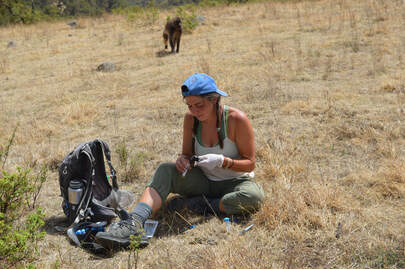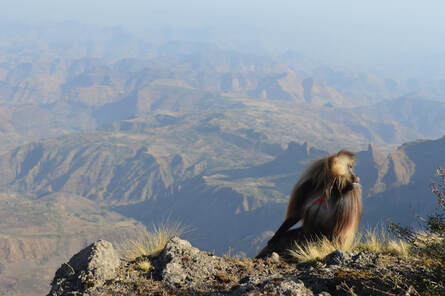|
My research combines behavioral observations with non-invasive biological sampling to understand reproductive physiology of wild primates.
My doctoral work examines how available energy impacts reproduction in wild male gelada monkeys as part of the Simien Mountains Gelada Research Project. For a copy of my CV, link here. |
Read on to learn more about my dissertation work!
|
Geladas (Theropithecus gelada) are endemic to Ethiopia. Among primates they are unique in many ways, including their unusual ecology (they primarily eat grass), the conspicuous red patch of skin on their chest (the "bleeding heart"), and their love of mountains (few primates inhabit such high elevations).
Geladas live in reproductive units, each containing an alpha or ‘leader’ male who maintains nearly exclusive reproductive access to the females in his unit. Outside of these units, bachelor males in all-male groups lack reproductive opportunities unless they depose an existing leader and gain access to his females ("takeovers"). Attempted takeovers often involve intense fighting and chasing, so physical condition of the competitors may play a role in the takeover outcome. |
My dissertation examines how energetic condition affects the dynamics of male reproductive competition in geladas. To understand male reproduction (testosterone) and energetic status (C-peptide), I conduct immunoassays on non-invasively collected fecal and urine samples. I combine these physiological measures with behavioral data on activity budgets and photograph data on chest patch redness (a potentially costly signal of male status).



